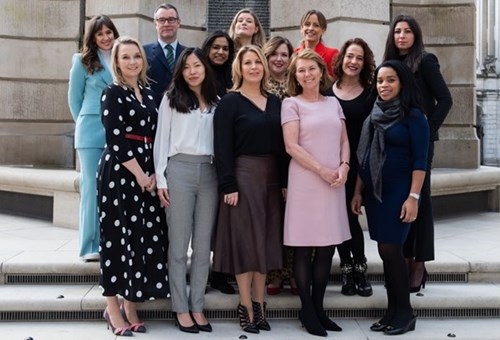“Inflation is the one form of taxation that can be imposed without legislation.”
Milton Friedman
The news that Government borrowing was a record £62.1 billion in April, taking UK National Debt to £1.9 trillion, sent ‘Dr Doom’, economist Nuriel Roubini (image from BBC headline), into a paroxysm of despair. However, it’s not what the stock markets are telling us.
True, we are seeing a massive disruption in employment and the economy: but this will not be the time to study precedents when it comes to making forecasts. Instead, what we are witnessing first hand, in each of our own homes, is a dramatic gear change as we move into the online economy of the future, where the key is the impact of technology on the prospects for inflation.
So, in this commentary we answer the question ‘so what can we do with all this debt?’, we look at who’s making money in huge amounts at this time, and we welcome a new force for investing in the future: WealthiHer.
My introduction to City life in the late 1970s was a time of deep economic despair. After a decade of industrial disputes, three-day working weeks, and a major oil price shock - public debt was soaring, inflation was soaring, and Margaret Thatcher entered No. 10.
During those heady years of the new Conservative government, I was head of the Gilt Settlement and Money department at Wedd Durlacher Mordaunt, the market-maker that provided 40% of all trading on the London Stock Exchange at the time. Government bond issuance was massive, offering ‘coupon’ interest rates of over 15% at one stage. It took years of challenging high inflation expectations with high interest rates to push the economy back into shape.
Mr Roubini, you just don’t know what doom looks like.
Today’s instant economic chaos is totally different. There is virtually no inflation, and Government debt is being issued at negative interest rates: that’s right, if you lend your money to Government, you have to pay them to take it!
Why is this? It’s because the supply/demand balance which drives inflation has totally changed over the past 40 years, and that’s been caused entirely by technology. Over the past 20 years, online provision has introduced huge scalability in terms of supply, while at the same time massively restricting physical demand – and all at the people’s choice.
The most direct example of this phenomenon is the extraordinary story of Amazon, which now has a market capitalisation of $1.2 trillion: that’s about half of the entire UK National Debt. Media comment is starting to predict that its Chief Executive, Jeff Bezos, will become the world’s first trillionaire in 2026.
Inflation is going nowhere in the years ahead and, as Government debt climbs and while the standard of living may be severely disturbed for many people as redundancies pile in, the quality of life for most people will not be hit anywhere near as hard as in the 1970s or 1930s.
So, what of the National Debt? In 2017, 23% of it was already owned by the Bank of England following years of quantitative easing. We won’t see the current details for a few months yet, but it’s safe to assume that over a quarter of that £1.9 trillion current debt is tucked away in the skirts of the Old Lady of Threadneedle Street, which has a very competent new Governor in the form of Andrew Bailey.
My prediction is that, in due course, the Bank of England will announce that it is simply writing off its Government debt holdings. Central banks can do that - it’s what ‘printing money’ means. They’ll be no appreciable change in the low level of inflation and, by that time, the economy will have incorporated permanently many of those characteristics of online living that we are now experiencing in scale for the first time.
We should also expect significant Government investment in infrastructure to get the jobs market moving again, also funded by Government debt sold to the Bank of England for cancellation.
So, that’s why the stock markets are not unduly despondent: businesses are evolving, rather more swiftly than they expected, into the new realities of life.
And it’s good to see a new team promoting female investing in order to take advantage of some of these new opportunities. We’ve been delighted to welcome WealthiHer to our airwaves on Share Radio, and on this Wednesday evening 27th May at 6:30 PM there will be a webinar hosted by our own Vicky Sayers, all about how you can improve your relationship with money.
Message from the WealthiHer Network:
"Numerous research studies highlight the fact that women aren't as active as men when it comes to managing their finances, and are more likely to leave crucial decisions up to their male partners. The WealthiHer Network has a mission - to change the finance industry for the better, arming women with the financial knowledge and confidence they need to grow and protect their wealth.
70% of women lack financial confidence, and lose nearly £1 million throughout their lives as a result. Advancing the financial futures of women is now more pertinent than ever. So please join the WealthiHer finance experts from HSBC Private Bank and RBC Wealth Management on Wednesday 27th May at 1830. They will be interviewed by Share Radio's Vicky Sayers, as they explore why women face challenges when it comes to their relationship with money, what can hold them back from actively managing and engaging with finances, and learn what tools, tips and services are available to help.
To join the webinar on Wednesday, please follow this link: https://us02web.zoom.us/j/89715093636".
Gavin Oldham OBE
Share Radio


